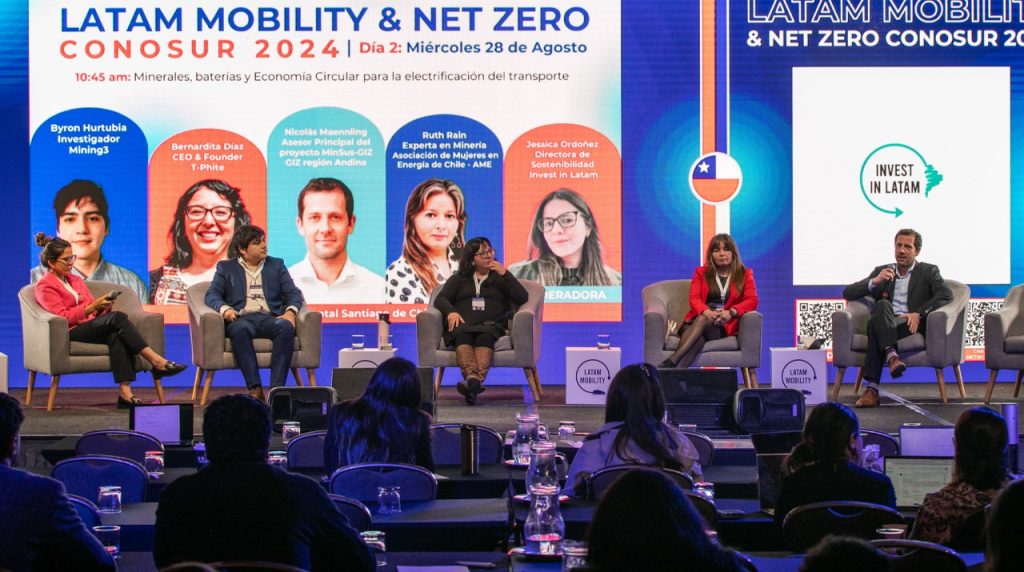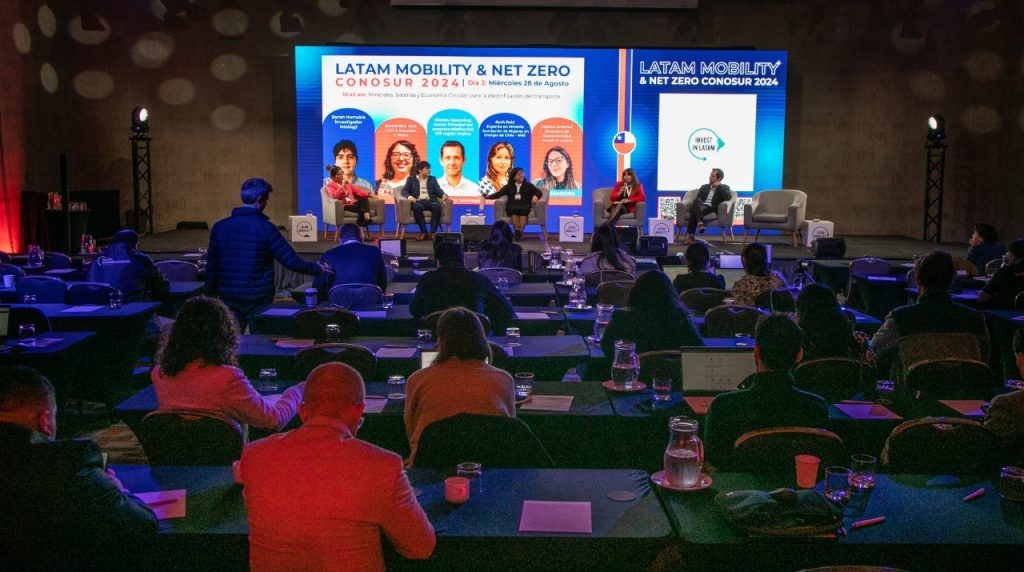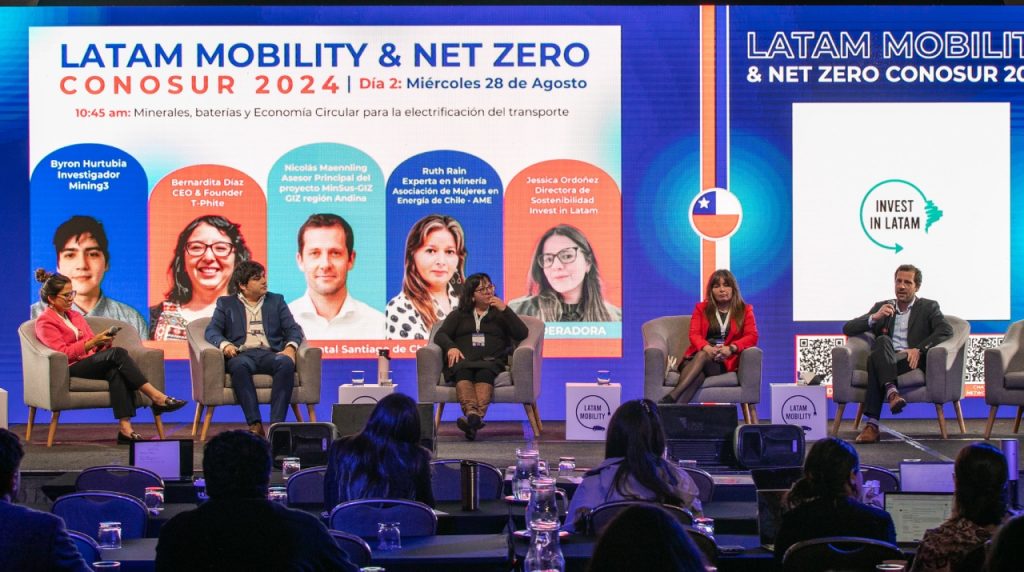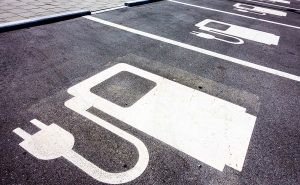
Chile Offers Key Mining Potential to Decarbonize the Transportation Sector

Chile is one of the world’s leading countries in the production of critical minerals for the development of different technologies. That is why the Latam Mobility & Net Zero: Southern Cone 2024 presented the panel “Minerals, batteries and circular economy for the electrification of transport”.
Bernardita Díaz, CEO & Founder of T-Phite, explained that one of the initiatives developed by the organization is to transform tire waste into anode material for battery storage technologies, among other innovations.
She detailed that by 2025 it is estimated that more than 12 million tons of graphite will be needed to manufacture batteries. “If we consider the total generation of tires in the world, we could supply 35% of the demand for graphite by 2035,” she said.
She noted that the main challenge is in the materials needed for storage. “The challenge is in the supply chain, in the materials, there is no focus on developing new technologies.”
Díaz emphasized the importance of looking at the energy transition from the source, such as materials.
GIZ and the Price Impact
Nicolás Maennling, Senior Advisor of the MinSus program of GIZ Andean region, specified the financial point within the key materials and minerals for the elaboration of batteries.

He pointed out that demand and supply have a key impact on price. “On the demand side it is a quantity of minerals that are required to reach the targets.”
He assured that tariffs such as those imposed by the United States on Chinese technology generates an impact on prices. “Supply is concentrated in critical minerals, China is doing export controls and it impacts and distorts prices.”
Maennling stated that offering quality is one of the big challenges today, which is why GIZ is working on ESG criteria, imposing legislation on what aspects should be taken into account when buying minerals.
Mining3 and Careful Research
Byron Hurtubia, Mining3 Researcher, explained that they are based in Australia and started research with a battery application and solutions for the mining sector, trying to bring battery suppliers to innovation.
He emphasized that in Chile, mining is a key industry, so it is key to present a range of solutions to optimize processes and reduce costs in the supply chain.
Hurtubia also explained that Mining3 develops tangible solutions to the challenges identified by the mining industry using fundamental and applied research.

The research has a direct impact on collaboratively accelerating the delivery of real-world solutions, ensuring they are available to the market as quickly and efficiently as possible.
Women’s Leadership
Ruth Rain, Mining Expert and representative of the Chilean Association of Women in Energy (AME), emphasized that they seek to empower women in the energy sector and highlighted her experience in the sector working for many years on circular economy projects and mentoring women in technology initiatives.
“In Chile we have an interesting position in critical minerals, we are strategic with a good geopolitical position with cobalt and other minerals that are also produced in countries with small scale unlike us,” she said.
Rain pointed out that the mining industry requires a large capital investment and to take into account that these types of mining projects are long term, so we must seek economic stability in prices.
“We must work on minimizing the impact of mineral production on the environment, think of collaborative business models where supply and demand are linked, so the circular economy is an attractive model for this industry,” she said.





